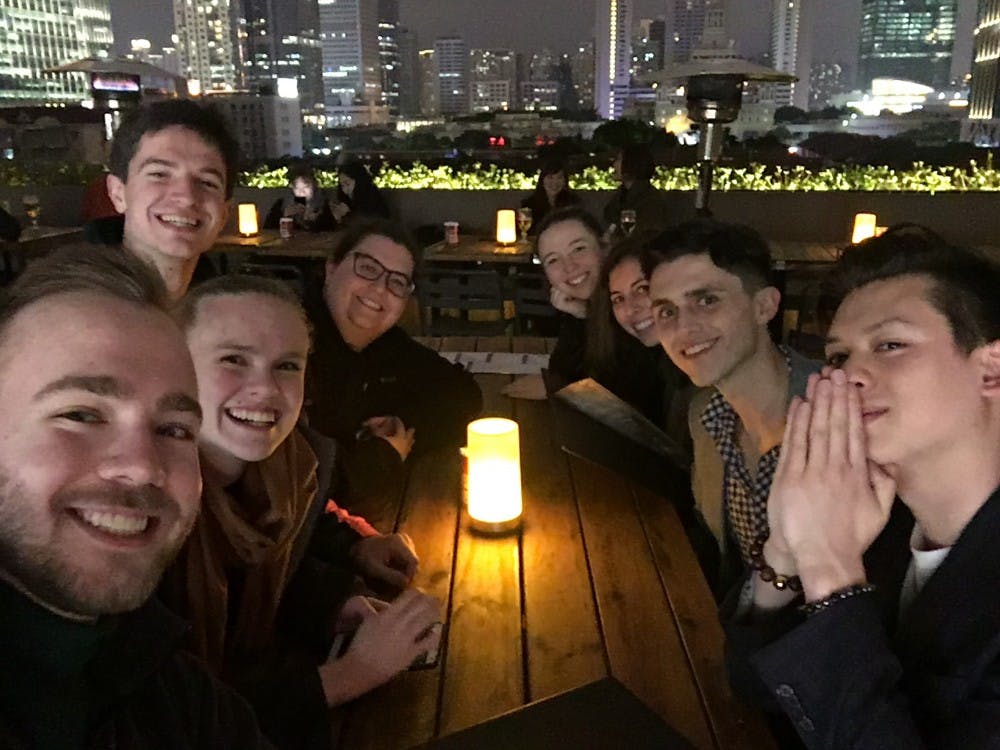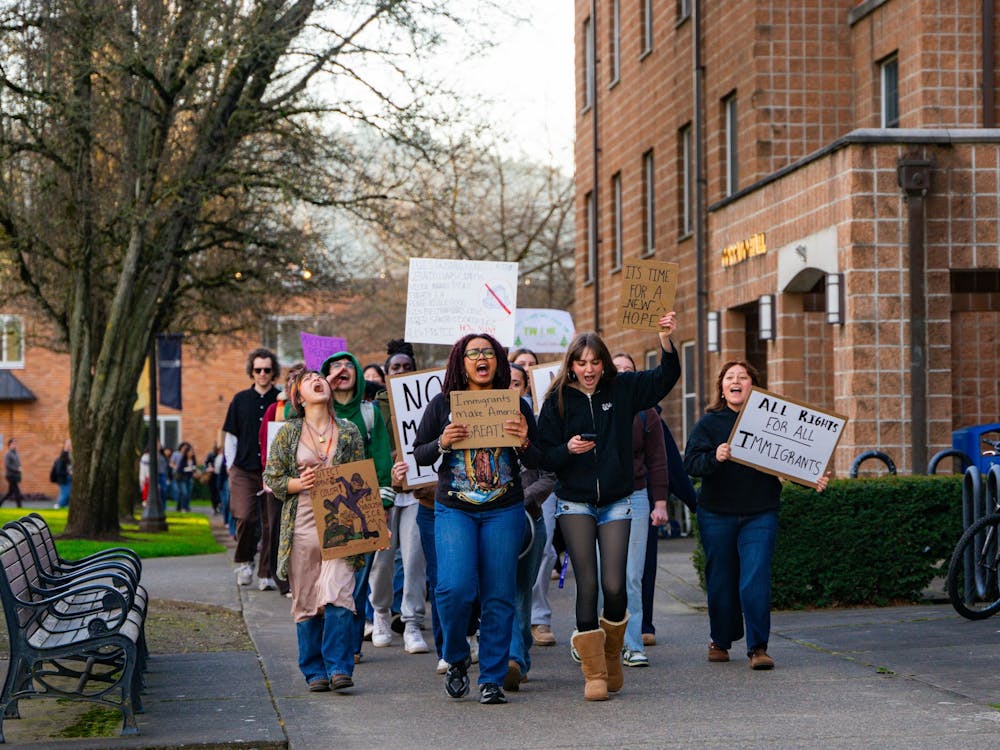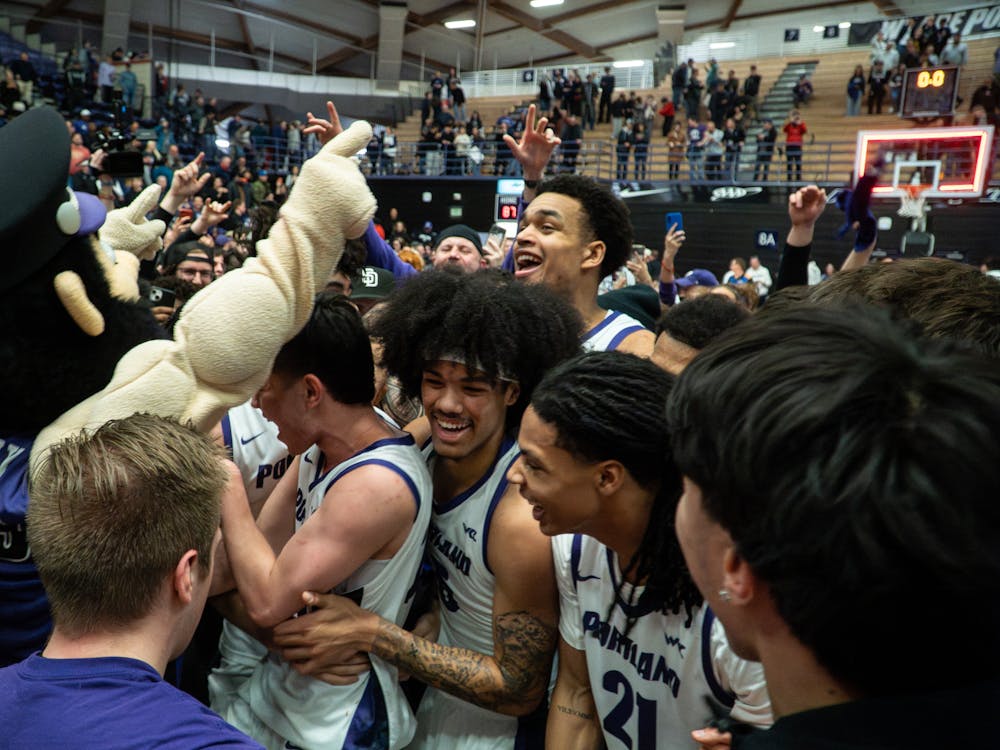Senior mechanical engineering major Ben Kallen and his brother used to drive around with planks of plywood in the back of their truck. The lumber wasn’t to make a bonfire, rather a makeshift skate ramp. Now, Kallen is developing a portable skate ramp, but this time it’s not made out of old plywood. And soon he may have the opportunity to create and distribute his invention thanks to the University of Portland’s Entrepreneurship Scholars (E-Scholars) program. This program allows students to design a venture, which could be a business, invention or non-profit idea.
Every year, 25 students of various majors are picked from a pool of applicants and split into different cohorts, or groups of around eight people. As a part of the program, students take three classes with their cohort over the course of a year and go on three different trips; one to New York City over fall break, one to Denver, Colorado in February, and an international trip over spring break or early summer to a destination decided by the members of each cohort. This program is run by Dean of the Pamplin School of Business, Robin Anderson, and Director of Entrepreneurship and Innovation, Peter Rachor.
“The entrepreneurship scholars program immerses you in an entrepreneurship type of environment where you can spend time brainstorming and thinking about a venture that you want to pursue,” senior August Urban said. “Whether it’s a product or a service, you have access to resources to make it a thing.”
At the end of the E-Scholars program, students participate in the 100k challenge — a Shark Tank-style competition where students have 10 minutes to present their venture to a panel of judges. The judges then have five minutes to decide whether or not it should be funded. This year’s 100k challenge is on Saturday, April 28 in the Shiley Hall 3rd floor auditorium rooms. The first-place winner of this challenge will be able to take their venture to production.
There are three categories: for-profit venture, non-profit venture, and the invention. The winners of each category get $1,250. They can then apply for up to $10,000 in investment and $10,000 in support services if they want to launch their businesses.
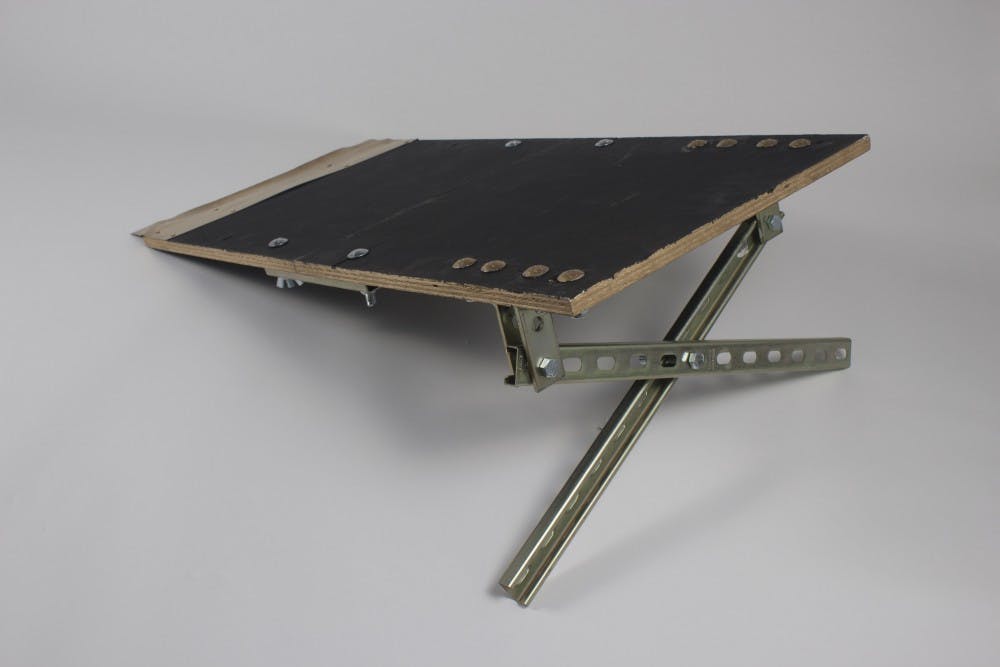
The class emphasizes the value of creative problem solving, innovative thinking, and getting out of your comfort zone.
“The intention of e-scholars is to put students out of their comfort zone to learn things by being thrown into some of these situations,” Rachor said. “When we talk about entrepreneurship, people tend to think it’s a business thing — it’s really not. It’s coming up with solutions, identifying problems and really being able to innovate new things.”
The class also has a mentorship aspect, where each student is paired with someone who has experience in entrepreneurship and innovation. E-scholars are required to have multiple meetings throughout the academic year with these mentors to check in and get advice on their ventures.
“You get paired up with a mentor who may have started their own business or works for the industry,” Kallen said. “Just someone who knows what they’re talking about and has a wide network.”
Though mentors and students are sometimes in similar industries, the pairing is often random. Many mentors are also alums of the E-scholars program.
“About 60 percent of the mentors are alums who did the program, and tend to have only graduated within the last 10 years or so and are out doing innovation-type things,” Rachor said. “I’ve tried all kinds of methods of pairing, and what I’ve found is that it’s better to just do it pretty much randomly, because once students are in, they often change their [venture] idea.”
E-scholars spend the first semester in the program coming up with a venture and trying to decide whether it is viable. Though most cohorts are split into two semesters, Urban and Kallen’s group was split into three, going from the spring of their junior year to the spring of their senior year. This gave them more time to decide on a venture.
“You do market research, and over the break of the fall semester you fly out to New York and talk with people in your industry,” Urban said.
For both the New York trip in the fall and the international trip in the spring, the students in the program are required to set up all their meetings with companies and people in their industries. A minimum of three meetings is required for the international trip.
“On [international] trips, students focus on their own ventures and have to set up meetings in those countries,” Rachor said. “Even though they spend a lot of time researching how something might work in the U.S., they get somewhere else and find out it’s totally different.”
Urban and Kallen just returned from their international trip to China — they spent four days in Hong Kong and four days in Shanghai. In Hong Kong, Kallen met with Julius Brian Siswojo, owner of 8FIVE2 Skate Shop, who gave him structural and marketing advice on his portable skateboard ramp venture, which he said was the most memorable part of his trip.
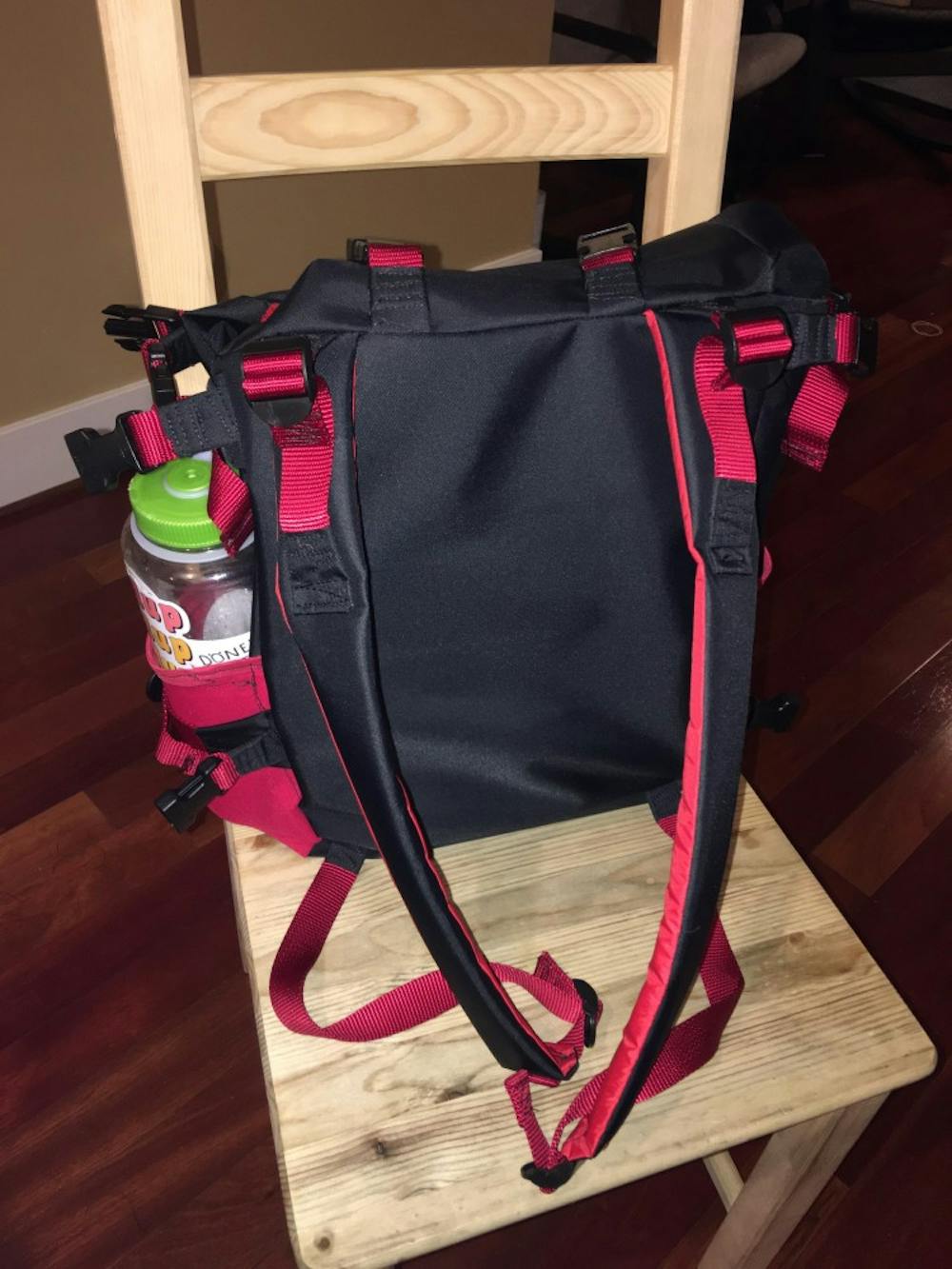
“He’s 20 years older than me, born in Indonesia and lived in Hong Kong, and here we are, talking about the same thing,” Kallen said. “His skate shop focuses on selling streetwear. I asked him where the intersection between streetwear and skateboarding is, and asked him how I can market my product as a streetwear product.”
According to Urban, Shanghai was a culture shock for the group compared to the more westernized city of Hong Kong. His most memorable moment was a meeting there with DM&C digital marketing and production company CEO, Charles Chen.
“I didn’t initially know how much of a heavy hitter this guy was,” Urban said. “ This meeting I had with him was really intense. It was certainly life-changing.”
The meeting that was expected to last only one hour ended up being three. Afterwards, Chen invited Urban to join him for dinner with his accountant.
“We were just drinking beer and eating food and getting to know each other better,” Urban said. “Our initial meeting was at 2 p.m. at his office, and by this point it’s 9:30 p.m., and we’re just forging this really powerful relationship. I’m still in contact with him, and he actually agreed to be a mentor to me.”
In addition to these trips, the E-scholars also take a trip to Denver, Colorado in February to meet up with other universities that have similar programs.
“Each February we go to Denver and meet up with a couple of other schools and pitch their business, communicate why people should support it,” Rachor said.
The E-Scholars program follows a business model, but it is not limited to business majors. One-third of students are business majors, one-third are engineering majors, and one-third of students can be in any field of study. Though students are able to apply at any point in their college careers, about 75 percent of the students participate in their junior year and 25 percent in their senior year.
“We try to find a way to get anybody into the program who is a good fit in terms of what they really want to do,” Rachor said. “The main thing for E-Scholars is identifying people who want to take on the extra and want to make a change in the world.”
The program also requires an entrance fee between $2000 and $4000 and varies depending on if the applicant gets a scholarship.
“The return on investment is immense,” Urban said. “Not only do you fly to New York, but you get to fly internationally. You also get to decide where you go as a cohort.”
The University of Portland’s E-scholars program also was awarded Outstanding Specialty Entrepreneurship Program twice from the United States Association for Business and Entrepreneurship.
“Ours is what’s called a specialty model program, meaning it’s for small groups of students,” Rachor said. “We are the only school in the whole world to have ever won the award twice.”
Meet the E-scholars: What They are Creating
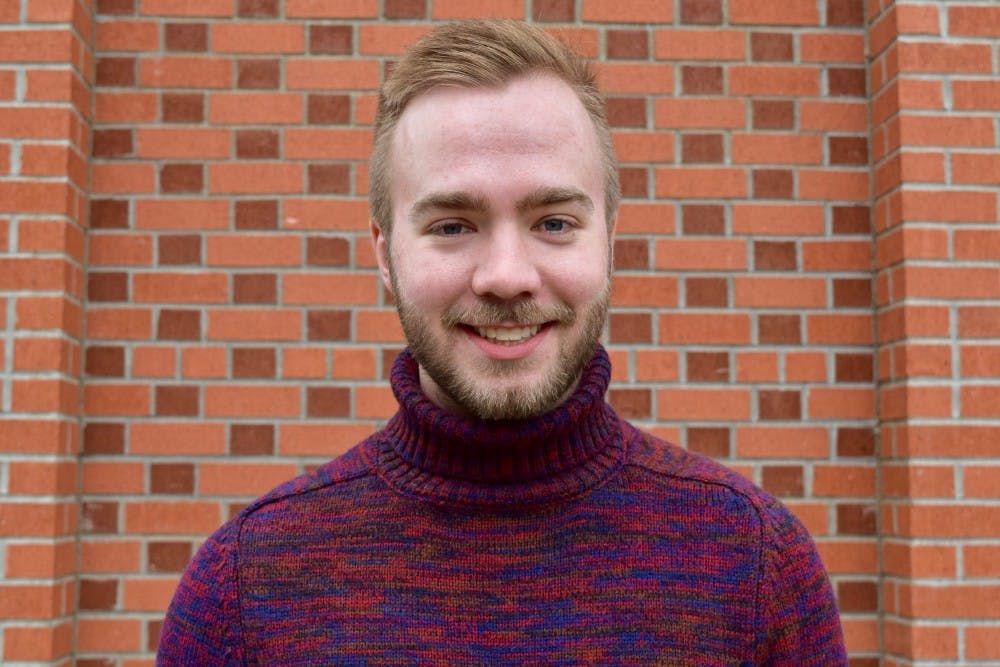
August Urban
Senior operations and technology management major and creator of Modulus Backpack
Q: What is your venture?
A: “My product is called the Modulus backpack. The idea is that it’s a modular waterproof backpack. You have your gym bag, your lunch box, your backpack, and you can put them all together as a single unit to simplify everything that you’re carrying. You can drop your gym bag in your locker and your lunchbox in the fridge without ever having to unpack anything. You just unclip it. Each piece is a stand-alone bag, so if you just need one thing, you can unclip it. The idea is being able to customize a bag to suit your needs over the course of the day. My price point is going to be around $100 to $150, but it’s built to last.”
Q:How did you get inspiration for it?
A: “The inspiration I got from this was living in the Pacific Northwest for the last four years, the weather changes on a dime. I live off campus now, so I kind of hated having to leave my house in the morning with my hands full of everything that I needed over the course of the day. Then the weather would change and I would have to scramble to get out of the rain and hope my belongings didn't get drenched. So I thought there has to be a better way.”
Q: Do you have any advice for students who want to be entrepreneurs?
A: “If you have an idea and people say ‘Oh, that’s a stupid idea,’ that’s actually an indicator that your idea might actually be viable. If there is some resistance to your idea, then it might actually be pretty good because the ones who take advantage of niches that people don’t tend to see at first are the ones who really take off.”

Benjamin Kallen
Senior mechanical engineering major and creator of ColorBlind Ramps
Q: What is your venture?
A: “Over the summer I was doing a lot of skating, so I came up with the portable skate ramp idea. The prototype is a 20-inch long, 40-inch wide ramp that weighs 23 pounds. The material costs us around $80 or $90. My price point is around $150, and my competitor is currently selling at $170. My first prototype is a ramp that you can separate into multiple pieces, and assemble and disassemble in 5 minutes. My final vision is kind of like a lawn chair-backpack hybrid that turns into a skate ramp.”
Q: How did you get inspiration for it?
A: “My little brother is a better skater than me, and in the back of our pickup truck we have a bunch of planks of plywood that he found at a construction site somewhere. So he’d stack all the plywood on top of itself and make a ramp out of it. Then we’d drive around somewhere and stop and make this makeshift ramp out of it.”
Q: Do you have any advice for students who want to be entrepreneurs?
A: “In brainstorming and bringing ideas forth, I try to be a sponge. I approach all my classes and all my conversations with the mindset of drawing a parallel between what they’re doing and what I want to do, like taking the model of success from other things and applying it to my own situation.”



